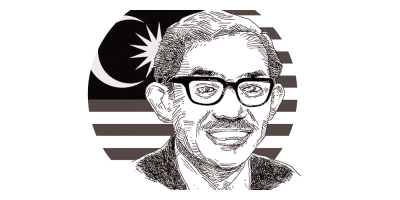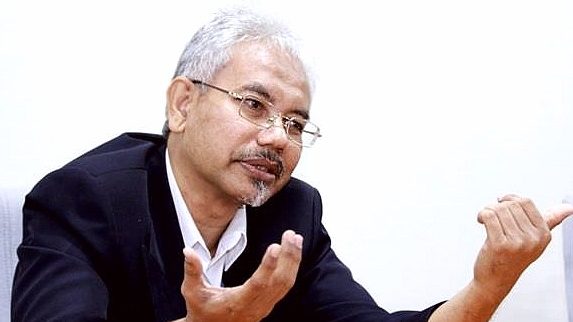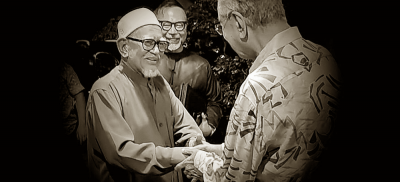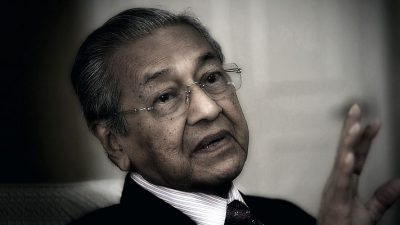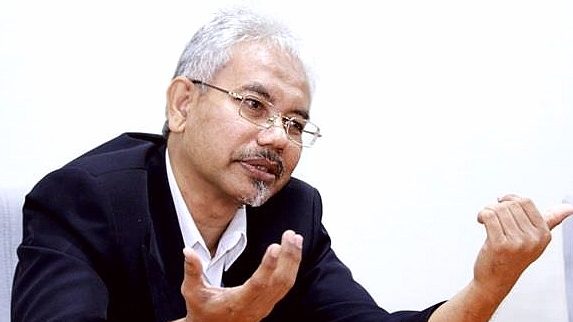There is a serious “pro-China and patriotic” trend among the Chinese community in Malaysia today, but the Malaysian government does not seem to care.
The reason seems to be closely related to Malay racism. How can we say that?
Malaysia is a multi-racial country where the Malay political parties that have been in power for more than half a century rely on racist tone as their weapons of power. They do not promote local patriotism education, because if only the Malay religious culture is used as the basis for patriotism, it will be difficult for other minorities to accept.
It should be noted that there is a basic principle to promote indigenous patriotism. That is, it must emphasize that all races, regardless of their origins and diverse cultural practices, should equally bear the obligation and responsibility of allegiance to the same country.
Since all races have to be given equality in this sense, this is not good for the policy favoring a certain race implemented by the Malay racism in power. Given such a contradictory consequence, why not just forget about it!
Before the emergence of modern state forms in Southeast Asia, local societies did not have the concept of patriotism that was loyal to the “state”. All they had was loyalty devoted to the feudal kings or lords. Whenever a king or lord was eliminated by hostile forces, people would be forced to accept a new king, and had to express their allegiance to assume a new form of corvée and taxes.
Indeed, the concept of patriotism based on the modern state form originated in the formation of European nation-states in the 18th to 19th centuries.
It is a politically radical movement filled with communal self-protective sense and brewed by a common national culture. The spirit of patriotism created was aimed at opposing the oppressive totalitarian monarchy or foreign nations.
However, there are diversified types of patriotism, ranging from purely striving for national independence and self-reliance to those with extreme xenophobic chauvinism. The latter is often the fuse that promotes conflicting foreign policies and wars between countries.
Arguably, civic education and history teaching are the blueprints for cultivating patriotic sentiments of young people commonly used in modern countries.
What is the effect of patriotism in civic education? More than 200 years after of the Napoleonic wars, Western European countries that have always attached importance to patriotic education have now felt that such education is of little significance. After World War II, people generally realized that Hitler’s German Nazism was “extreme patriotism” that evolved from patriotism.
Patriotism generally represents a certain negative connotation in Western Europe, and the content has often involved racism which is anti-social.

According to a recent survey conducted for school teachers in Western Europe, most teachers believed that their patriotism education promoting loyalty to one’s country was not effective. But they generally agreed that students could learn the values of communicating with others, understanding and cooperating with each other, and protecting the environment and caring for society.
In today’s China, patriotism education is considered to be an important element that can stimulate China’s modernisation, rebuild the great Chinese revival, and sacrifice personal interests to fight for national interests.
So, for our multi-racial Malaysia, do we need to strengthen our patriotism through national service? At the beginning of the article, it was said that Malay racist leaders were not keen on national service with all the citizens participating. The historical evolution does show that it is a fact.
In February 2004, Abdullah Badawi, who had just taken office as prime minister, tried to implement a national service plan involving a small number of all ethnic groups in view of the serious racial divisions. He saw the need to cultivate patriotism of young people and encourage more exchanges between races. The training period was set for only three months.
By 2016, the Najib government changed to a voluntary basis and the training period was reduced to two months. Three months after the Pakatan Harapan government came to power in 2018, Mahathir, who became again the prime minister, instructed the Minister of Youth and Sports Syed Saddiq to announce the abolition of the national service system, on the grounds that the country was in financial difficulties and the program had failed to cultivate patriotic and civic-conscious youths.
Based on our understanding of Mahathir, who had always governed with Malay priority notions, he might have thought that since the military and police forces are already largely monopolized by the Malays, why should ethnic minorities such as Chinese and Indians receive military training? Moreover, the Chinese are not very supportive either. If they give their allegiance to the China they “love”, let it be as it is even easier for us to go on with the Bumiputra policy.
Because in this way, it will be like a rose without the support of local soil, and it will not grow branches and flowers when they fight for local rights. This is how the author has understood the implicit thinking of Mahathir and his comrades. But the pro-China faction in the Chinese community may not be aware of this at all.
When Mahathir abolished the national service system, he was also forced to abolish the Malaysian National Civics Bureau (BTN), which was used during Najib’s era as a civil servants training camp believed to have involved much Malay racism. Such cancellation was most likely a compromise with other coalition parties as Mahathir was no longer in full control of the coalition cabinet. But, for him, it could also be expressed as a personal unhappiness with Najib.
The principle of the national service plan implemented by Abdullah Badawi is good as he focused on the people of all ethnic groups in the country.
As long as the training plan is fair and reasonable, with reference to Malaysia’s multi-racial cultural background, cultivating a broad patriotism and promoting the goal of ethnic exchanges and harmonious coexistence will provide a good prospect for Malaysia.
Needless to say, national service can also improve the Malay language standard of the ethnic Chinese and other minority groups, which is of great benefit to national construction. In particular, allowing young people of all ethnic groups to study, train, and communicate with each other and to understand each other’s cultural thinking, can strengthen a deeper level of interaction among our youths. Then, why not do it?
As to some negative reports, such as camp fighting, sexual harassment and racial bullying, this is purely a small management problem, and we must not give up food because of choking!
(Wong Tai-Chee has his B.A and M.A degrees in Urban and Regional Planning from the University of Paris, and earned his PhD in Human Geography from the Australian National University. After teaching 20 years in Nanyang Technological University, Singapore, he retired in 2013. He then worked as Distinguished Professor for two years at Guizhou University of Finance and Economics, China, and as Dean and Professor at the Southern University College, Johor until the end of 2018. He was Visiting Professor to University of Paris (Sorbonne IV), Visiting Fellow to Pekin University, Tokyo University and University of Western Australia. His main research interests are in urban and economic issues, and more recently on Malaysian politics. Besides his 15 self-authored and edited book volumes, he has written over 100 academic articles and published widely in international journals.)
ADVERTISEMENT
ADVERTISEMENT







